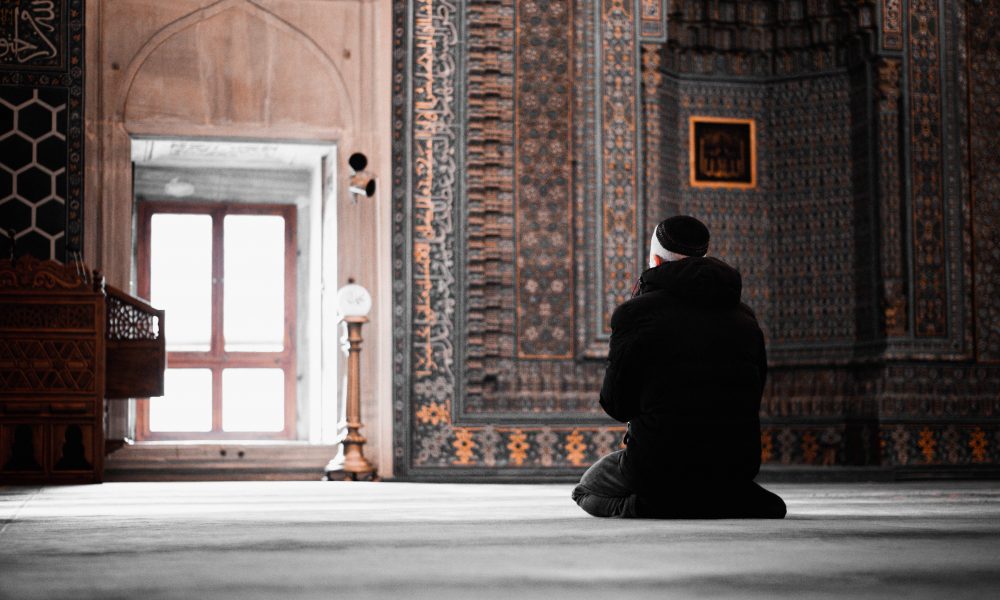What Does "Allah Ybarek" Mean? Unlocking The Power And Significance
Have you ever heard someone say "Allah Ybarek" and wondered what it means? Well, buckle up, because we're diving deep into the cultural, spiritual, and emotional layers of this powerful phrase. Whether you're familiar with Arabic or just curious about the phrase, we've got you covered. "Allah Ybarek" is more than just words—it’s a heartfelt expression with layers of meaning that resonate across cultures and communities.
Let’s face it, phrases like "Allah Ybarek" aren’t just random sayings—they carry centuries of tradition and emotion behind them. This article will break down the significance, history, and cultural relevance of this phrase, ensuring you walk away with a deeper understanding of its importance. Whether you're exploring Islamic traditions, Middle Eastern culture, or simply expanding your linguistic knowledge, this is the place to be.
Before we dive in, let me give you the scoop: this article isn’t just a bunch of facts thrown together. It’s crafted to be engaging, informative, and easy to digest. So, grab your favorite drink, sit back, and let’s uncover the magic of "Allah Ybarek." Let’s go!
Table of Contents
- Origins of "Allah Ybarek"
- Cultural Significance
- Spiritual Meaning
- Common Uses in Daily Life
- Comparison with Similar Phrases
- Linguistic Analysis
- Historical Context
- Modern-Day Use
- Common Misconceptions
- Practical Application
Where Does "Allah Ybarek" Come From?
Alright, let’s start with the basics. "Allah Ybarek" is an Arabic expression that roughly translates to "May Allah bless you." The phrase has deep roots in Islamic tradition, where blessings and gratitude are central themes. The word "Allah" refers to God in Islam, while "Ybarek" comes from the Arabic verb "baraka," meaning "to bless." So, when someone says "Allah Ybarek," they're essentially asking for divine blessings for the person they're addressing.
But here's the kicker—it’s not just about religion. The phrase transcends religious boundaries and is often used in everyday conversations across the Middle East and North Africa. It’s like saying "God bless you" in English, but with a richer cultural and historical context.
Breaking Down the Words
To truly understand "Allah Ybarek," let’s break it down:
- Allah: The Arabic name for God, recognized by Muslims and many other faiths.
- Ybarek: A verb derived from "baraka," meaning "to bless" or "to bestow abundance." It’s a wish for prosperity and well-being.
Together, these words form a powerful expression of goodwill and gratitude.
Why Is "Allah Ybarek" So Important?
Now that we’ve got the basics down, let’s talk about why this phrase holds such significance. In many cultures, especially those rooted in Islam, expressing gratitude and seeking blessings is a way of life. "Allah Ybarek" isn’t just a polite gesture—it’s a reflection of values like humility, generosity, and interconnectedness.
Think about it: when someone says "Allah Ybarek," they’re not just saying "thanks." They’re acknowledging the divine presence in everyday life and expressing a desire for blessings to flow from God to the person they’re addressing. It’s a beautiful way of connecting with others on a spiritual level.
How It’s Used in Different Cultures
While the phrase is most commonly associated with Islamic culture, its usage extends beyond religious boundaries. In many Arab-speaking countries, "Allah Ybarek" is a common way to express gratitude, whether you’re thanking a shopkeeper, congratulating a friend, or acknowledging a kind gesture.
Here’s a fun fact: the phrase is even used in non-religious contexts, like when someone sneezes. Instead of saying "bless you," people might say "Allah Ybarek." It’s a testament to the phrase’s versatility and universal appeal.
The Spiritual Depth of "Allah Ybarek"
When it comes to spirituality, "Allah Ybarek" is a heavyweight. In Islam, blessings are seen as a direct connection to the divine. By saying "Allah Ybarek," you’re essentially asking God to shower the person with blessings, abundance, and protection.
But here’s the thing: it’s not just about material blessings. The phrase also carries spiritual significance, emphasizing qualities like humility, gratitude, and faith. When you say "Allah Ybarek," you’re acknowledging that everything comes from God and that you’re grateful for His blessings in your life.
Connecting with the Divine
For many people, saying "Allah Ybarek" is a way of staying connected to the divine. It’s a reminder that life is a gift, and that every moment, no matter how small, is an opportunity to express gratitude and seek blessings. Whether you’re saying it to a loved one or a stranger, the phrase carries a sense of spiritual depth that resonates with people on a profound level.
How Is "Allah Ybarek" Used in Daily Life?
Now that we’ve explored the spiritual and cultural significance of "Allah Ybarek," let’s talk about how it’s used in everyday life. This phrase isn’t just reserved for formal occasions—it’s a part of daily conversations across the Arab world.
For example, if someone gives you a gift, you might say "Allah Ybarek" as a way of expressing gratitude. Or, if someone sneezes, you might say it as a blessing. It’s even used in business settings, where it’s seen as a polite and respectful way to acknowledge someone’s efforts.
Examples of Usage
- After receiving a gift: "Allah Ybarek feek" (May Allah bless you).
- When someone sneezes: "Allah Ybarek" (May Allah bless you).
- During a celebration: "Allah Ybarek fil waled" (May Allah bless the child).
As you can see, the phrase is incredibly versatile and can be adapted to fit a wide range of situations.
How Does "Allah Ybarek" Compare to Other Phrases?
While "Allah Ybarek" is unique in its cultural and spiritual context, it shares similarities with other phrases used around the world. For example, in English, you might say "God bless you" or "thank you." In Spanish, you might say "Dios te bendiga" (God bless you). Each of these phrases carries its own cultural and linguistic nuances, but they all share a common theme: expressing gratitude and seeking blessings.
So, what makes "Allah Ybarek" stand out? Its deep connection to Islamic tradition and its widespread use in everyday life. While other phrases might be reserved for specific occasions, "Allah Ybarek" is a part of daily conversations across the Arab world.
Key Differences
- English: "God bless you" is often used in religious or formal contexts, while "thank you" is more casual.
- Spanish: "Dios te bendiga" is similar to "Allah Ybarek" in its religious connotations, but it’s less commonly used in everyday conversations.
Ultimately, "Allah Ybarek" stands out for its versatility and cultural significance.
A Closer Look at the Linguistics
From a linguistic perspective, "Allah Ybarek" is a fascinating phrase. The word "Allah" is a proper noun, while "Ybarek" is a verb derived from the root "baraka," meaning "to bless." Together, these words form a concise yet powerful expression that conveys gratitude and blessings.
But here’s the cool part: the phrase follows the rules of Arabic grammar, which emphasizes verb conjugation and word order. In this case, "Ybarek" is in the third-person singular form, meaning "he blesses." This grammatical structure adds to the phrase’s elegance and precision.
Breaking It Down Further
Let’s take a closer look at the phrase:
- Allah: The subject of the sentence, referring to God.
- Ybarek: The verb, meaning "he blesses" or "may he bless."
Together, these elements create a phrase that’s both grammatically correct and spiritually meaningful.
The Historical Context of "Allah Ybarek"
To truly understand "Allah Ybarek," it’s important to explore its historical roots. The phrase has been used for centuries in Islamic and Arab cultures, where blessings and gratitude have always played a central role. In fact, the concept of seeking blessings is deeply embedded in Islamic tradition, with numerous references in the Quran and Hadith.
For example, the Quran emphasizes the importance of gratitude and blessings, encouraging believers to express thanks for God’s generosity. Similarly, the Hadith contains numerous accounts of the Prophet Muhammad (peace be upon him) using phrases like "Allah Ybarek" to express gratitude and seek blessings for others.
Evolution Over Time
While the core meaning of "Allah Ybarek" has remained consistent, its usage has evolved over time. In modern times, the phrase is used in a wide range of contexts, from formal religious settings to casual everyday conversations. This evolution reflects the phrase’s adaptability and relevance in contemporary society.
How Is "Allah Ybarek" Used Today?
In today’s world, "Allah Ybarek" continues to be a popular phrase across the Arab world and beyond. Whether you’re in Egypt, Morocco, or Saudi Arabia, you’re likely to hear this phrase in everyday conversations. Its universal appeal lies in its ability to convey gratitude and blessings in a simple yet profound way.
Moreover, with the rise of social media and global connectivity, "Allah Ybarek" has gained even more visibility. People from all over the world are discovering the phrase and incorporating it into their daily lives, whether they’re Muslim or not.
Global Reach
Thanks to platforms like Twitter, Instagram, and TikTok, "Allah Ybarek" has reached a global audience. People are using the phrase in captions, comments, and even memes, showcasing its versatility and cultural significance. It’s a testament to the phrase’s power to transcend borders and connect people from all walks of life.
Clearing Up Common Misconceptions
While "Allah Ybarek" is widely recognized, there are still some misconceptions about its meaning and usage. For example, some people assume it’s only used in religious contexts, while others think it’s exclusive to Arab-speaking countries. Let’s clear up these misunderstandings once and for all.
First of all, "Allah Ybarek" isn’t just for religious settings. It’s used in a wide range of contexts, from casual conversations to formal events. Additionally, while it’s most commonly associated with Arab cultures, its usage extends to other parts of the world where Islamic traditions are practiced.
Key Misconceptions
- Only for Religious Use: False. It’s used in everyday conversations as well.
- Exclusive to Arab Countries: False. It’s used by Muslims and non-Muslims alike in various parts of the world.
By understanding these misconceptions, we can appreciate the true depth and versatility of "Allah Ybarek."
Putting "Allah Ybarek" into Practice
Now that we’ve explored the meaning, history, and cultural significance of "Allah Ybarek," it’s time to put it into practice. Whether you’re expressing gratitude, seeking blessings, or simply connecting with others, this phrase is a powerful tool for building relationships and fostering positivity.
Here are a few tips for using "Allah Ybarek" effectively



Detail Author:
- Name : Mr. Casimir Schiller IV
- Username : logan02
- Email : madonna03@hotmail.com
- Birthdate : 2000-04-09
- Address : 85393 Kutch Corners Apt. 188 West Kennabury, GA 94861-0245
- Phone : +1-724-590-4250
- Company : West-Cole
- Job : Library Technician
- Bio : Rerum distinctio quam facere ut voluptatibus id. Sunt officiis est deserunt ipsa dolorem accusamus autem aut. Voluptates eveniet est autem debitis eligendi animi maiores.
Socials
facebook:
- url : https://facebook.com/arianna7652
- username : arianna7652
- bio : Facilis amet perspiciatis repudiandae non quas. Ex quia qui quam ipsam.
- followers : 898
- following : 2895
tiktok:
- url : https://tiktok.com/@arianna_real
- username : arianna_real
- bio : Non omnis illo autem quod aut quasi sed.
- followers : 3015
- following : 1677
linkedin:
- url : https://linkedin.com/in/amurray
- username : amurray
- bio : Natus ad eaque iste molestiae modi et sed.
- followers : 3680
- following : 1226
instagram:
- url : https://instagram.com/arianna_murray
- username : arianna_murray
- bio : Voluptas eos ut quia mollitia. Aspernatur molestiae eos facilis consectetur quas.
- followers : 504
- following : 2751